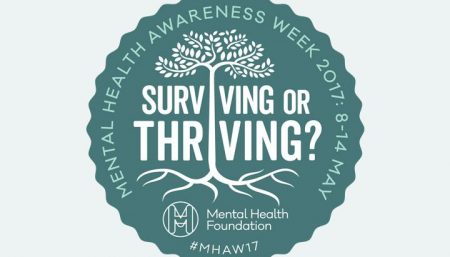
We all experience change in our daily routine- although often positive in the long term – disrupts our mental health. By focusing on change we can look at life’s pressure points: the crucial times of transition from one life stage to another when we experience adversity from becoming a parent, to going to school then perhaps university, dealing with change in the workplace and, of course, change that comes towards the end of life. Healthy and supportive relationships are key to good mental health.
Top 10 to Survive Pressures of a Relationship
1. No One is Born Perfect:
According to no other than Price Pritchett “Give people, including yourself, clear permission to make mistakes . . . and to fix the problems. Since nobody’s perfect, mistakes should be allowed. Cover-ups shouldn’t. Cover-ups create twice the trouble.” Stop kicking yourself for making a mistake. Avoid using the words “should” and “shouldn’t,” as in “I should have known better,” “I shouldn’t have used certain words.” Saying “should” or “shouldn’t” implies you did something wrong or, at the least, that you could have done better. Move on quickly from lapses.
2. Be an Optimist
The word Stress is used to describe both external events that make demand on us and the internal responses they trigger. In fact, stress is the body’s general response to any demand made on it, regardless of whether that demand is pleasant or unpleasant, or whether it is emotional or physical. All of us need some amount of challenge in our daily life to keep ourselves stimulated and lead our lives to the fullest. Damaging stress occurs when challenges becoming impossible to cope with. The effect of excessive stress can manifest itself in a variety of ways; it can cause potentially harmful changes in the behavior and undermine both physical and mental health. Looking on the bright side increases your ability to experience happiness in your day-to-day life while helping you cope more effectively with stress. Optimists, it turns out, do better in most avenues of life, whether it’s work, school, sports, or relationships. They get depressed less often than pessimists do, make more money, and have happier marriages.
3. Have Hope
Having hope allows you to see the light at the end of the tunnel, helping you push through even dark, challenging times. Accomplishing goals, even small ones, can help you to build your level of hope. Psychologist Charles R. Snyder has linked hope to the existence of a goal, combined with a determined plan for reaching that goal. According to him there are three main things that make up hopeful thinking:
Goals – Approaching life in a goal-oriented way.
Pathways – Finding different ways to achieve your goals.
Agency – Believing that you can instigate change and achieve these goals.

4. Accept Yourself
Whenever you feel low, seek out and embrace the positive traits of yourself and your life, and avoid measuring your own worth by comparing yourself to those around you. Always count your blessings. Make sure you’re not doing too much of one thing. Try to find a hobby or something to do that gives you pleasure. In case of need ask for help and don’t feel you have to do everything on your own. Take some of the pressure off by asking someone you know to help out.
5. Stay Connected
Intimate relationships help meet your emotional needs, so make it a point to reach out to others to develop and nurture these relationships in your life. Take a break when you feel the need. This will help ease the stress and exhaustion that many carers can experience.
6. Express Gratitude
People who are thankful for what they have are better able to cope with stress, have more positive emotions, and are better able to reach their goals. The best way to harness the positive power of gratitude is to keep a gratitude journal or list, where you actively write down exactly what you’re grateful for each day. Doing so has been linked to happier moods, greater optimism and even better physical health.
7. Find Your Purpose and Meaning
When you have a purpose or goal that you’re striving for, your life will take on a new meaning that supports your mental well-being. If you’re not sure what your purpose is, explore your natural talents and interests to help find it, and also consider your role in intimate relationships and ability to grow spiritually.

8. Master Your Environment
When you have mastered over your environment, you’ve learned how to best modify your unique circumstances for the most emotional balance, which leads to feelings of pride and success. Mastery entails using skills such as time management and prioritization along with believing in your ability to handle whatever life throws your way.
9. Exercise Regularly
Exercise boosts levels of health-promoting neurochemicals like serotonin, dopamine, and norepinephrine, which may help buffer some of the effects of stress and also relieve some symptoms of depression. Rather than viewing exercise as a medical tool to lose weight, prevent disease, and live longer – all benefits that occur in the future – try viewing exercise as a daily tool to immediately enhance your frame of mind, reduce stress and feel happier. Meditation techniques allow us to achieve a deep state of calmness and serenity while remaining alert. It also causes the oxygen requirement, breathing rate, heart rate and blood pressure to drop and help muscles to relax.
10. Practice Mindfulness
Practicing “mindfulness” means that you’re actively paying attention to the moment you’re in right now. Rather than letting your mind wander, when you’re mindful you’re living in the moment and letting distracting or negative thoughts pass through your mind without getting caught up in their emotional implications. Mindfulness can help you reduce stress for increased well-being as well as achieve undistracted focus.
If you regard happiness as coming from outside, you will waste a lot of time chasing it, because all the evidence suggest that happiness comes from within yourself. The same lies true with all other aspects of your life physical, mental, social and emotional life.
Disclaimer
The Content is not intended to be a substitute for professional medical advice, diagnosis, or treatment. Always seek the advice of your physician or other qualified health provider with any questions you may have regarding a medical condition.



